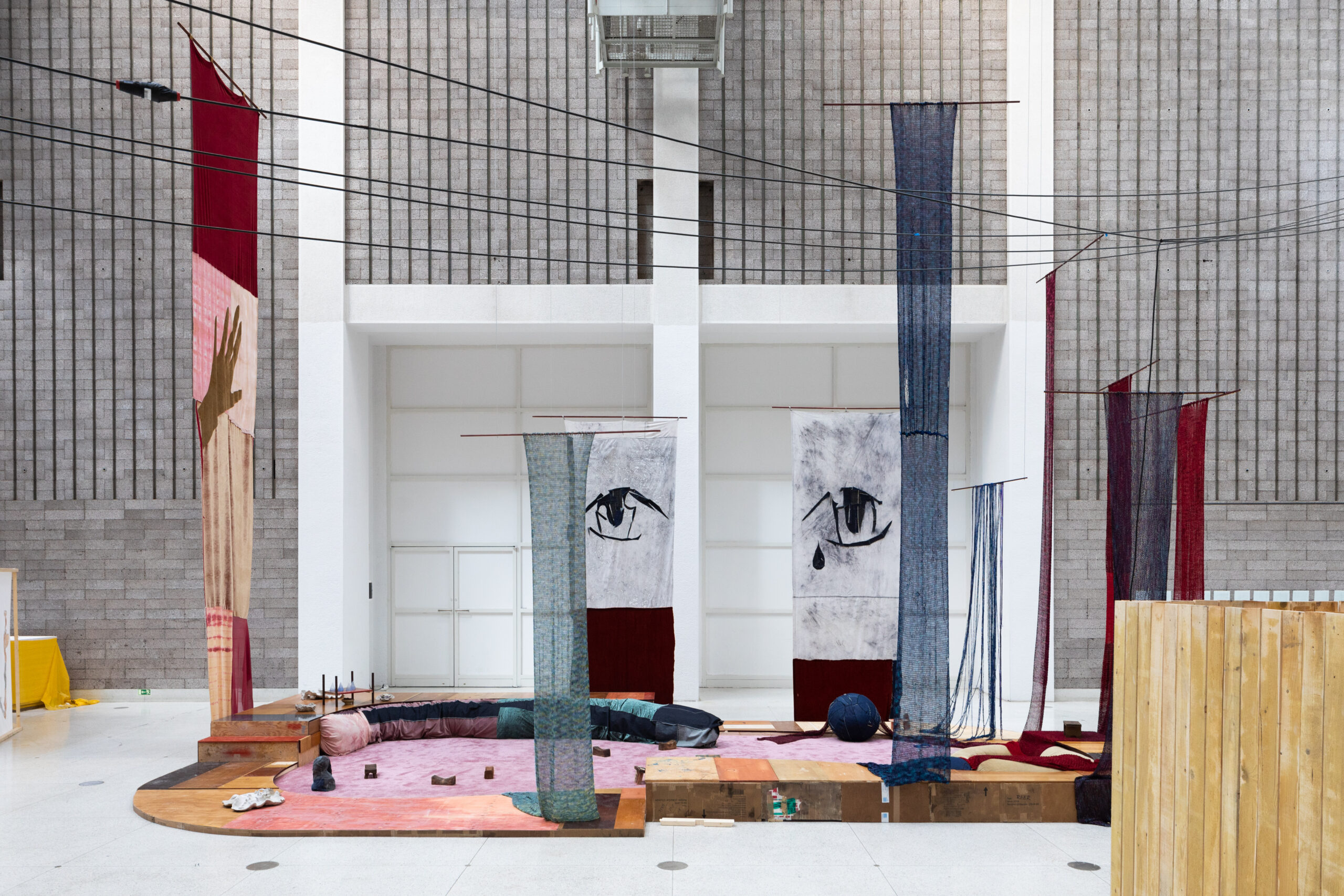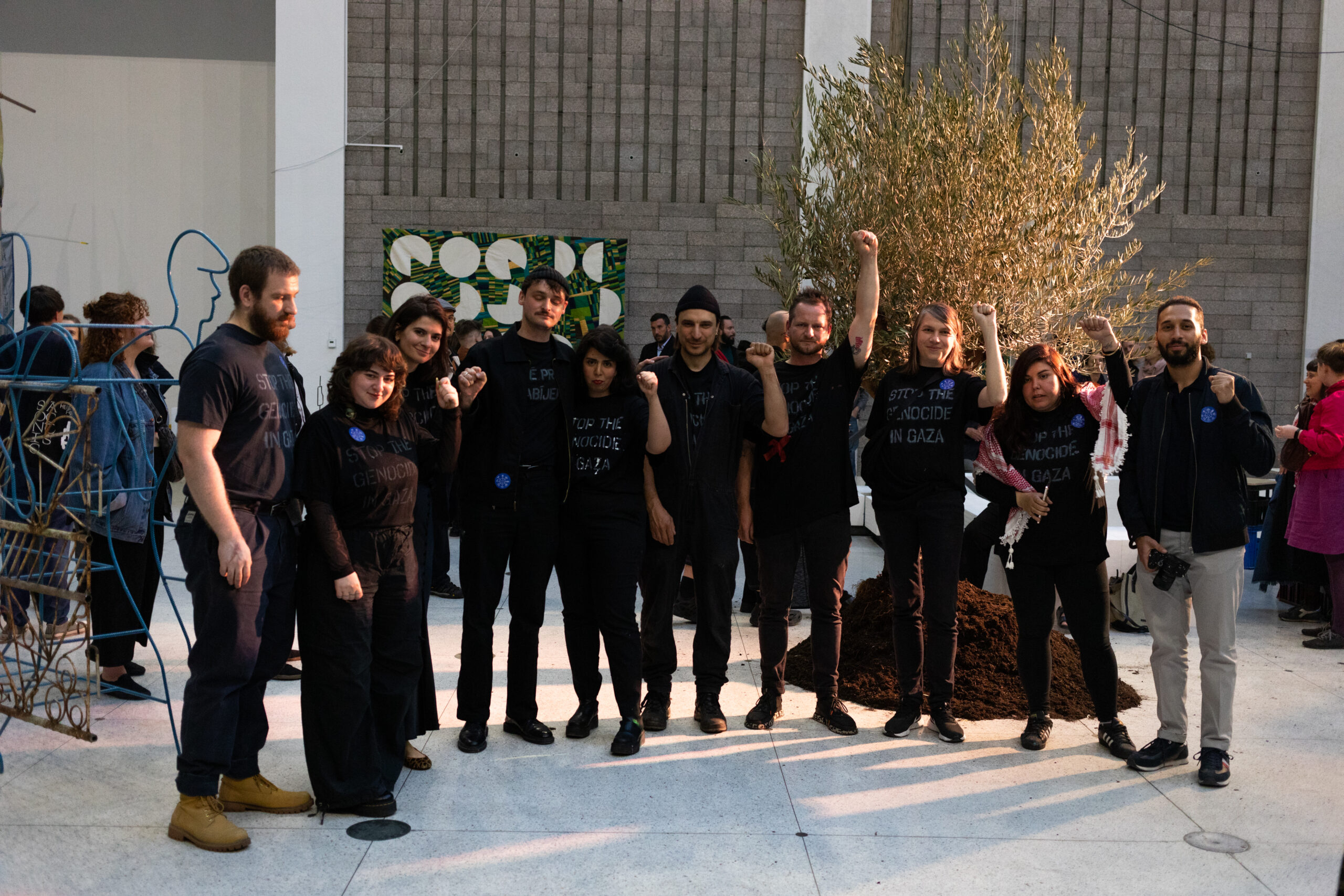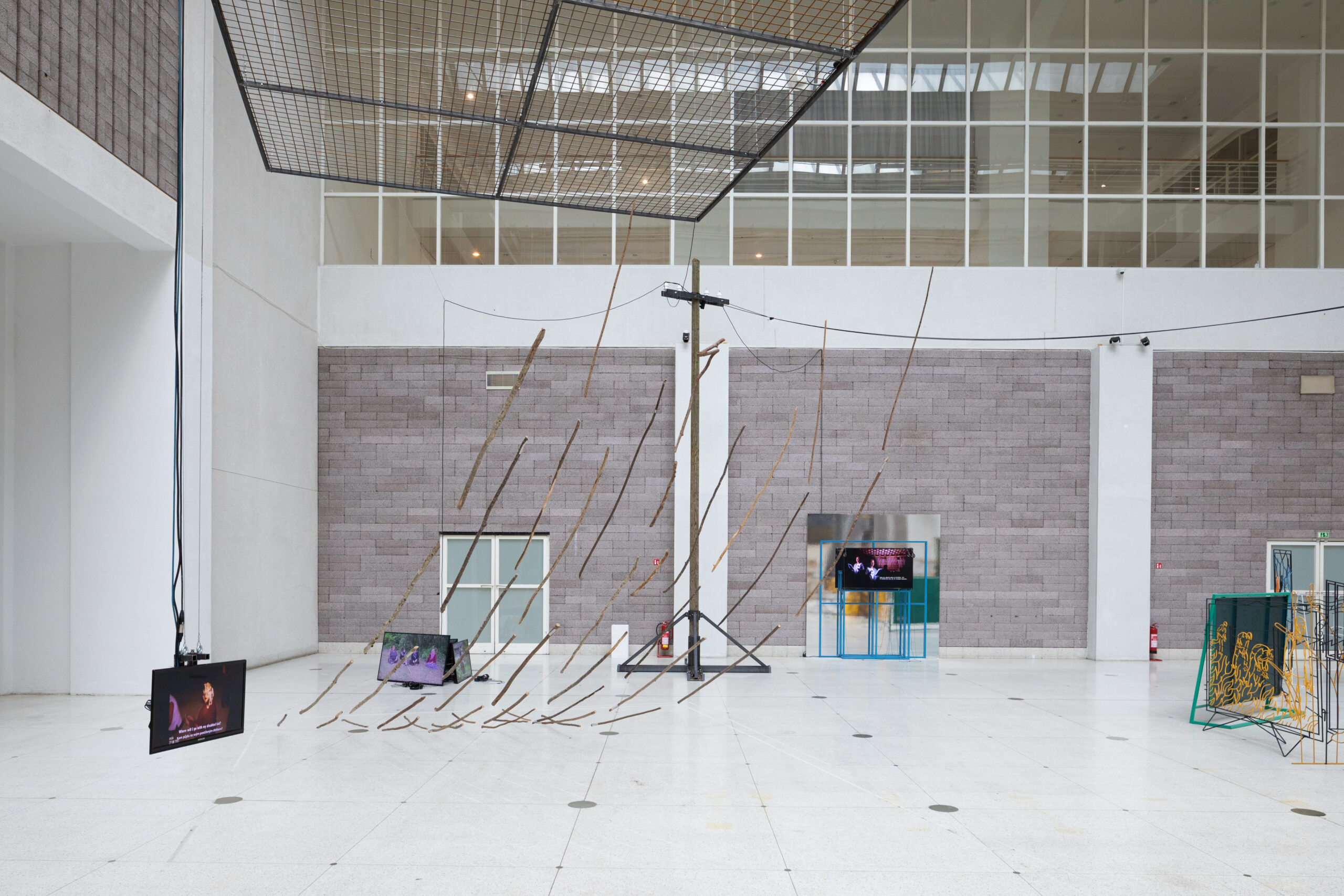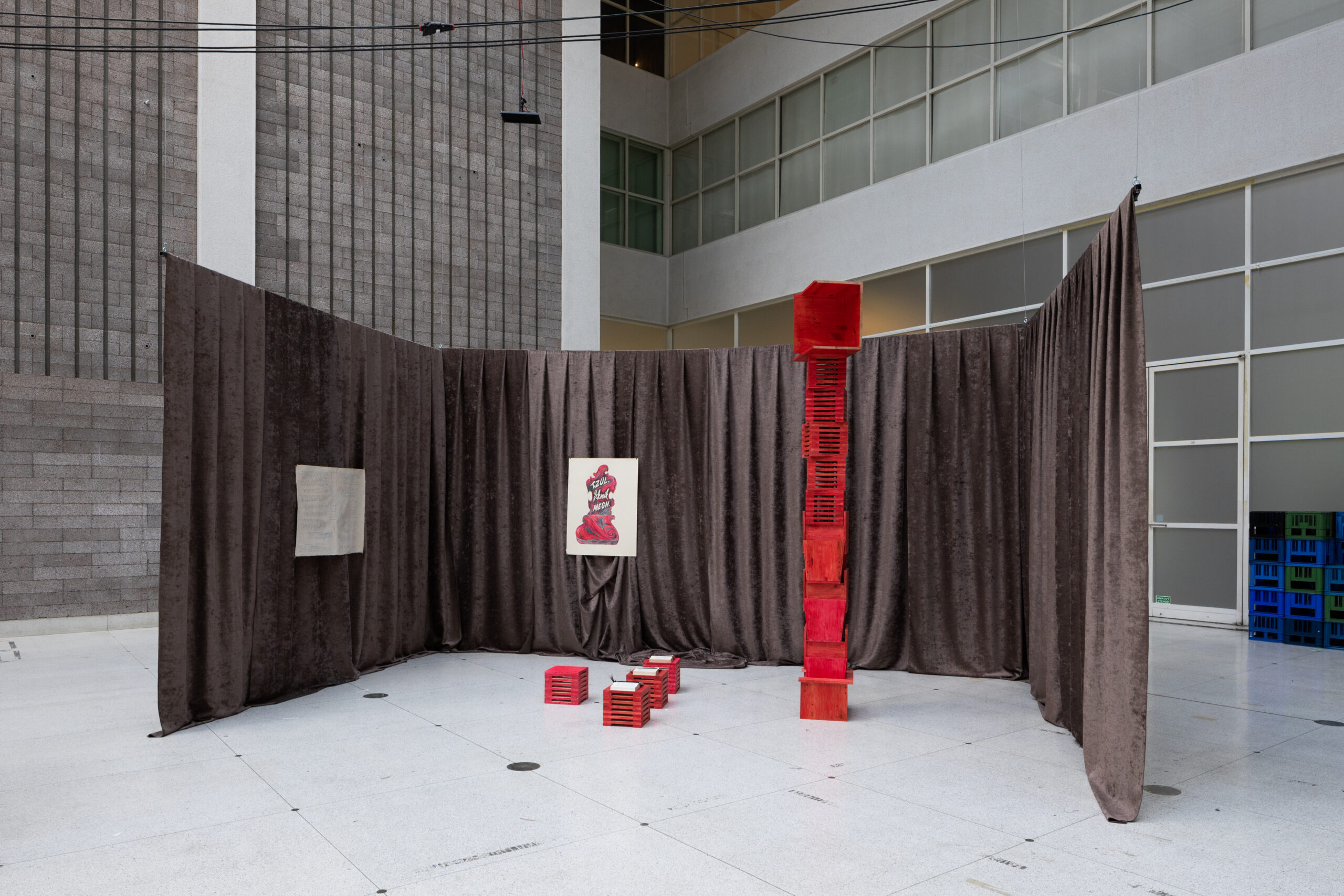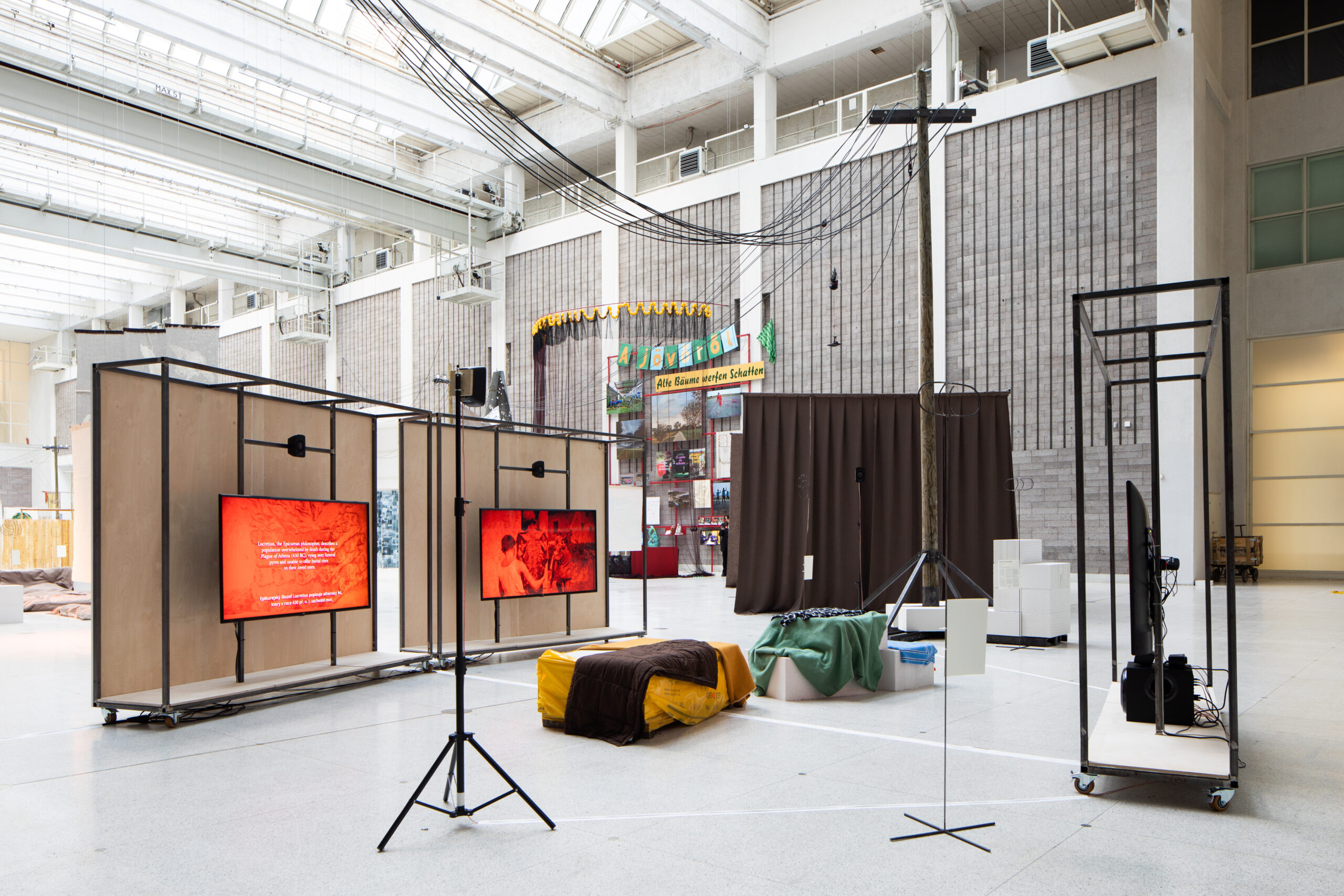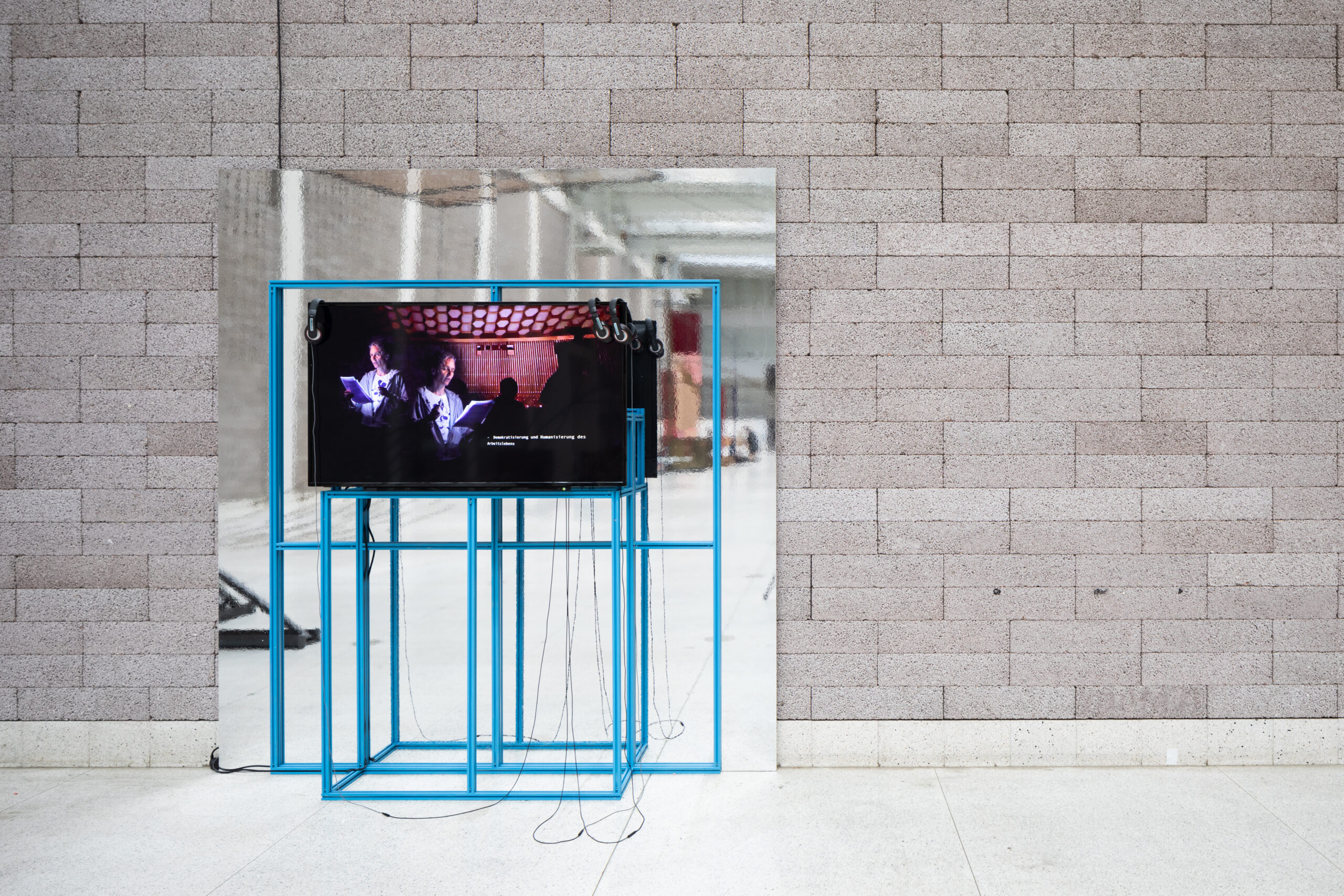The third edition of the Biennale Matter of Art will take place from June 14, 2024, to September 29, 2024, in the Grand Hall of the National Gallery Prague, the Lidice Gallery, and other venues. Curated by Katalin Erdődi and Aleksei Borisionok, the project will also feature a new bilingual publication comprising theoretical texts and artistic contributions. Admission to the biennale as well as the accompanying public program will be free of charge. The biennale is organized by the initiative tranzit.cz in cooperation with the National Gallery Prague and the Lidice Art Collection. Katalin Erdődi and Aleksei Borisionok graft their interests in rural change as social change and the legacies and futures of workers' movements. They focus on forgotten stories of social unrest and underrepresented experiences of sociopolitical transformation in Central and Eastern Europe and beyond. Bringing together diverse artistic and discursive contributions, the curators look for resonances between historical struggles and the contemporary moment. The Biennale Matter of Art marks a first-time collaboration between Erdődi and Borisionok, who are both based in Vienna.
Inspired by the technique of grafting, we ask ourselves how we can graft solidarities across the rural-urban divide, from the factories to the fields. Instead of letting our differences separate us, how can we create new alliances and grow stronger together? This is exactly what grafting does. It is a technique used in agriculture and medicine to join different plant parts as well as animal or human tissue so that they can grow together and become stronger. It shows us the possibility for transformation in surprising and unexpected ways, not restricted to fixed identities. We can initiate grafting, but we cannot control whether it succeeds or fails. We believe that we also need to acknowledge failure as part of our struggles for change.
